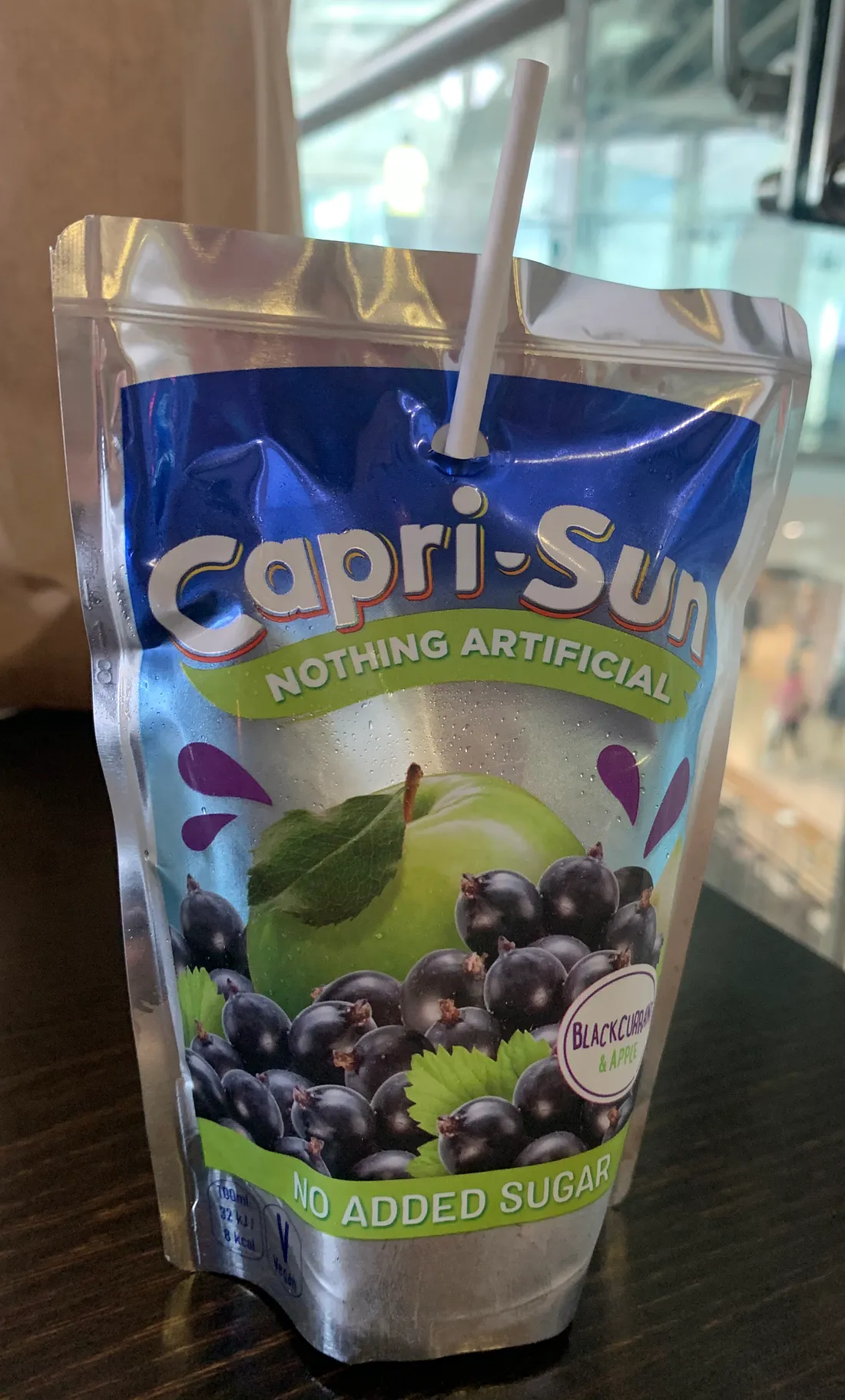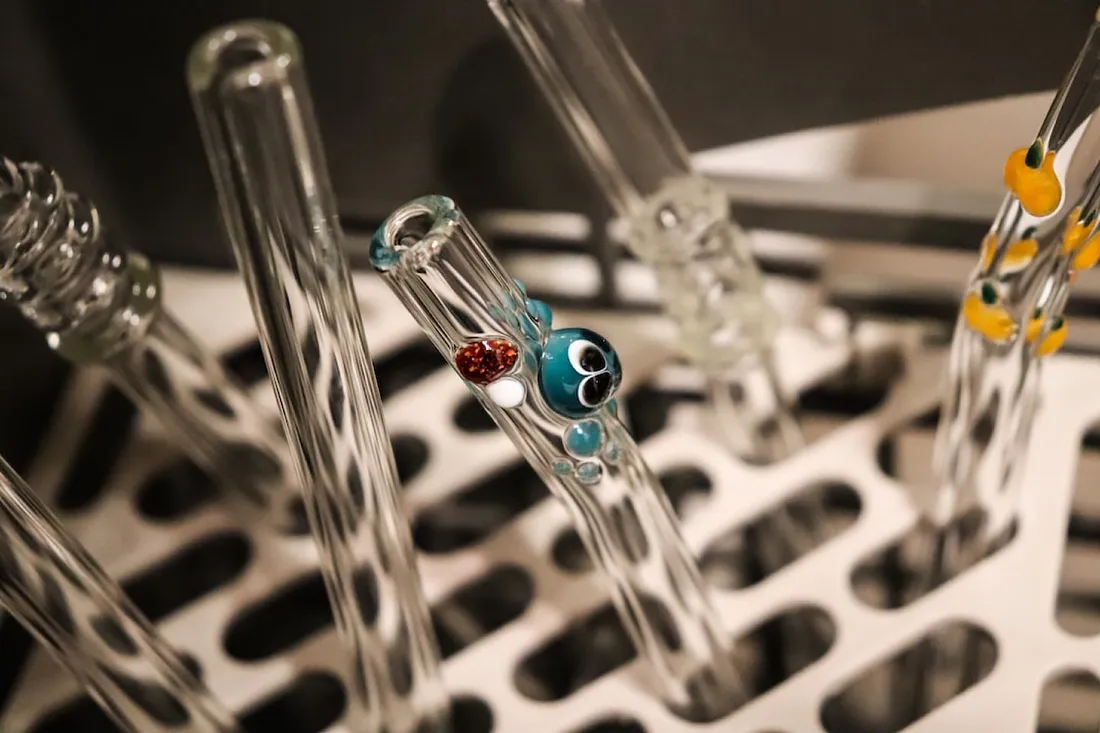The Straw Dilemma
Plastic straws are not safe for the environment as they decompose extremely slowly and recycling machinery is not equipped to recycle the small plastic tubes. Even though many people think using paper straws is better for the environment, it isn’t a perfect fix as paper isn’t recycled when it is stained with food or drink.
Photo by FLY:D on Unsplash
Plastic straws: a common component of any beverage, yet one that is not nearly thought about enough.
The average person in the US will use 38,000 straws between the ages of 5 and 65; this equates to about 633 straws per year per person.
How can one person possibly use that many straws in one year? Think about the number of times each week you stop by the local coffee shop on your way to work to order a coffee. Think about each time you go out to eat because you don’t feel like cooking and order a drink with your meal. Think about picking up a dozen juice boxes at the grocery store to pack in your kids’ lunches for school.
Although these things may seem harmless in the moment, when you consider how often you do these things you begin to see how detrimental they truly are to the health of our environment.
Plastic Straws

Photo by TEDI
Is it summer and you’re ordering a nice, refreshing drink at the poolside refreshment stand? Is it winter and you’re picking up hot chocolate to sip in front of the fire at home?
Many people come and go to buy drinks at cafes, restaurants, and coffee shops each day. Regardless of the place you choose to buy your beverage, almost all of them serve you your beverage with a plastic straw. The most common culprits: Dunkin Donuts and Starbucks.
3 of every 4 Americans drink coffee every day without a thought to the plastic device they are using to drink it. When faced with this issue, most people would say recycling is the solution. Surprisingly, recycling is the one thing that won’t help solve our straw dilemma.
The problem with plastic straws is the inability for them to be recycled. Straws are small in size and often fall through machinery used in the recycling process. Thus, even if the cup of the beverage is recyclable, the straw is not.
The result of this is millions of recycled plastic straws lying in landfills for decades, contaminating our environment and posing a great threat to wildlife.
According to Our Last Straw, 7.5 million plastic straws were found, and removed, in 5 years from U.S. shores alone. It’s astounding to think that something as small as a straw can amount to such a sheer amount of plastic that takes decades, at minimum, to break down.
Hence, we are rallying for change to save our environment. Straw manufacturing companies must stop producing plastic straws and turn towards producing reusable, environmentally-friendly straws. This is necessary in order to keep today’s world and future generations protected.
Paper Straws

Photo by Jason D on Unsplash
While plastic straws are still the norm for most fast food chains, many restaurants are looking towards a more eco-friendly material to accompany ones favorite drink. Growing in popularity, paper straws are becoming more regularly seen in restaurants.
Countries in the EU, as stated by the European Commission, are also becoming more aware of the hazards of single use plastics, and have since placed restrictions on the use of plastic straws for drinks. In various countries around Europe, restaurants can be seen transitioning to paper straws, some sporting a crisp black outer color while others are are more vibrant.
Paper straws are widely seen as more environmentally friendly, as they decompose faster than plastic. This is because paper comes from trees and is more natural compared to artificial plastic.
Paper is broken down by bacteria because it decomposes easily. On the other hand, plastic is a tougher material that cannot be broken down by bacteria. It can take plastic anywhere from 20–500 years to break down fully. During that time is when plastic has the potential to end up in landfills or in the stomachs of aquatic organisms.
However, paper straws can’t solve all of our problems; especially when deforestation is such a prevalent issue in today’s world. Trees are cut down by the thousands to produce paper products each year, including paper straws.
Without companies pledging to lower their carbon footprint by offsetting the amount of greenhouse gases they produce, many forests will be cut down to produce paper straws. This creates a massive problem as trees provide necessary oxygen for the rapidly growing human population and give habitats to many species. As birth rates climb and the human life span lengthens, deforestation is a problem that needs to be addressed sooner rather than later.
While paper is easier to recycle than plastic, paper straws and other paper materials used for food and drinks are recycled less because food soaks into the paper. Thus, paper straws still create waste in landfills.
Both paper and plastic straws pose a threat to our environment when used in bulk by humans. We must explore alternatives in order to reduce landfill waste, animal death, and pollution.
Solutions

Photo by Kym MacKinnon on Unsplash
Stop Using Straws
The simplest solution is to avoid using straws. Eliminating the use of straws would reduce the amount of waste in landfills, prevent plastic pollution in major waterways, and save the lives of marine animals.
Many people drink from mugs or cups when pouring themselves a beverage at home. If more people took this approach when ordering a drink at a restaurant, straws wouldn’t pose as much of a danger to the environment.
It’s as simple as refusing a straw at a restaurant or telling a barista at a local coffee shop not to include a straw in your drink. Drinking straight from a cup instead of through a straw is a small price to pay to help protect the environment.
Buy a Reusable Cup
Another solution is buying a reusable cup for drinks. Most major beverage companies, such as Dunkin Donuts and Starbucks, now sell reusable cups in their stores.
In recent times, more people carry around reusable cups with their beverages prepared at home. This helps the environment and is a better investment. Instead of buying a new cup each time you order a drink, purchase a reusable cup once and use it for every beverage you order.
Plastic Straw Hack
As mentioned above, straws are generally not recycled due to their tendency to slip through the cracks of recycling machinery. However, there is a way you can recycle your plastic straws successfully.
According to Get Green Now, placing plastic straws into a jar made of plastic is a hack for recycling plastic straws. Since the packaging is much larger, it will not slip past recycling machines and will be successfully recycled.
Reusable Straws
For those who prefer to use straws when drinking their beverages, purchasing reusable straws is an easy way to help the environment.
These straws are cleaned and reused rather than thrown out. Reusable straws are constructed of glass, stainless steel, and other materials that are eco-friendly.
When purchasing a reusable straw, most companies even include a brush to help clean the interior of the straw. Most variants of reusable straws are dishwasher friendly and last a long time with proper care.
Recap
Plastic straws are not safe for the environment as they decompose extremely slowly and recycling machinery is not equipped to recycle the small plastic tubes. Even though many people think using paper straws is better for the environment, it isn’t a perfect fix as paper isn’t recycled when it is stained with food or drink.
Solutions to our straw dilemma include drinking straight from the cup, purchasing reusable cups, packaging plastic straws together, and buying a reusable straw. Take action now to protect our environment from plastic pollution.
